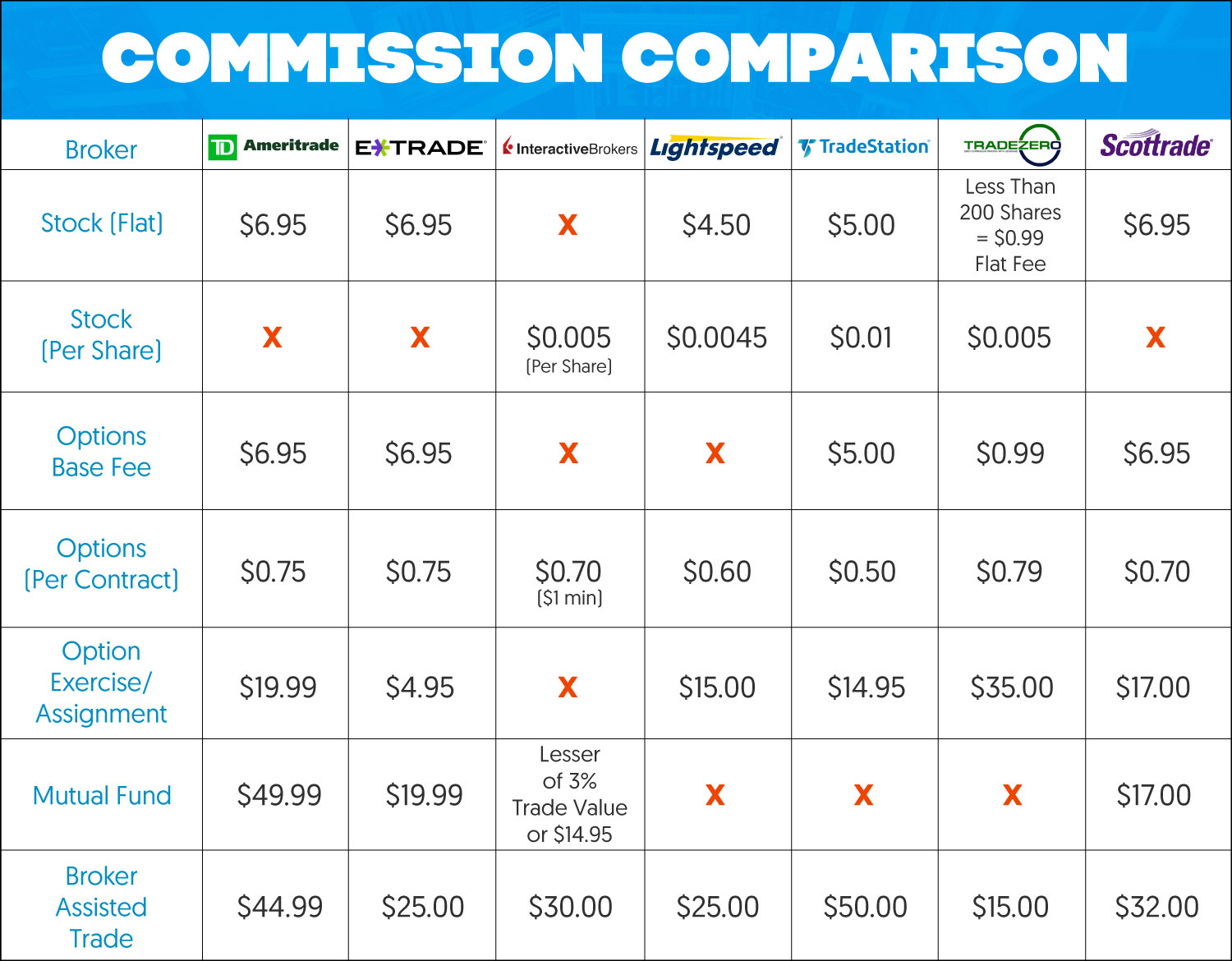Have you ever dabbled in options trading, feeling a surge of excitement as your potential gains and losses danced before your eyes? In the exhilarating realm of options markets, there exists an often-overlooked player that profoundly shapes your trading experience: commissions.

Image: www.linkedin.com
Commissions, the fees charged by brokers for facilitating options trades, can be a significant factor in your trading strategy. Their impact can fluctuate dramatically, from a minor cost to a substantial hurdle. Understanding commissions is paramount to making informed trading decisions and optimizing your returns.
The Mechanics of Commissions
Commissions for options trading are typically charged on a per-contract basis. The standard unit of measurement is one “round-turn,” which encompasses both the purchase and subsequent sale of a contract. The average commission ranges from $0.65 to $1.50 per round-turn, although it can vary considerably depending on the broker and the type of option being traded.
The commission structure can be either fixed or tiered, depending on the broker’s policy. Fixed commissions remain constant regardless of the trade size or underlying asset, while tiered commissions decrease as the trade size or underlying asset value increases.
Factors Influencing Commissions
Several factors influence the commissions charged for options trading. These include:
- Broker fees: Different brokers have their own commission structures, which can vary based on their offerings and customer service.
- Type of option: The commission for trading an option varies depending on whether it is a call or a put.
- Trade size: The commission for larger trades may be higher than for smaller trades.
- Underlying asset: The market capitalization and liquidity of the underlying asset (e.g., stock, index, or commodity) can also affect the commission.
Minimizing Commissions
In the competitive world of options trading, savvy traders constantly seek strategies to minimize commissions. Here are some effective tips:
- Negotiate with brokers: Don’t hesitate to bargain with brokers for lower commissions, especially if you trade frequently.
- Switch brokers: If your current broker’s commissions are too high, consider switching to a broker with more competitive rates.
- Consider online brokers: Online brokers typically offer lower commissions than traditional brick-and-mortar brokers.
- Maximize trading volume: When possible, execute multiple trades in a single session to qualify for any volume discounts offered by brokers.

Image: igotiyycixoq.web.fc2.com
Frequently Asked Questions
Q: How are commissions calculated for options?
A: Commissions are typically charged on a per-round-turn basis (purchase and sale of one contract), ranging from $0.65 to $1.50 per round-turn.
Q: Can I negotiate commissions with brokers?
A: Yes, you can negotiate with brokers to lower commissions, especially if you trade frequently. Many brokers are willing to offer discounts to retain active traders.
Q: What is the impact of commission structures on option trading strategies?
A: Commission structures can influence the choice of trading strategies. Traders using high-frequency strategies and smaller positions can be disproportionately affected by higher commissions.
Commissions For Options Trading

Image: warriortrading.com
Conclusion
Commissions for options trading are an integral part of the industry, affecting traders’ profit potential and overall trading strategy. By understanding the mechanics of commissions, factors influencing them, and strategies to minimize their impact, traders can make informed decisions that optimize their trading performance.
We invite you to explore our website and stay informed about the latest developments in options trading. Are you ready to delve into the exciting world of options and master the nuances of commissions to elevate your trading capabilities?






